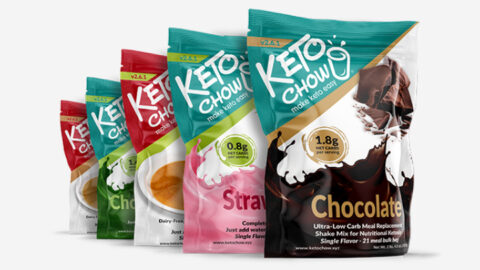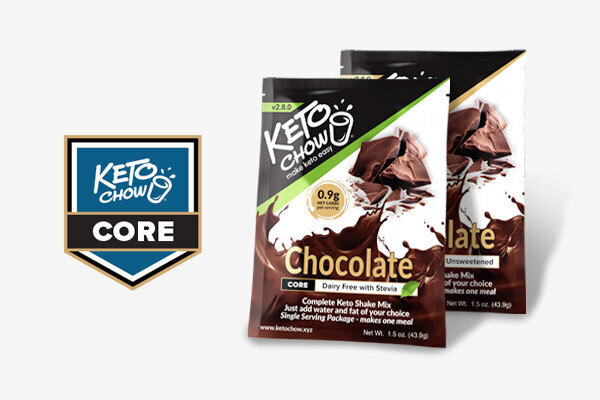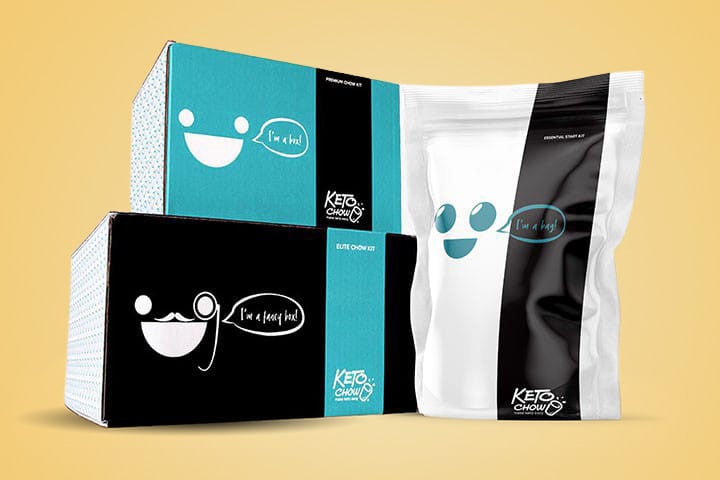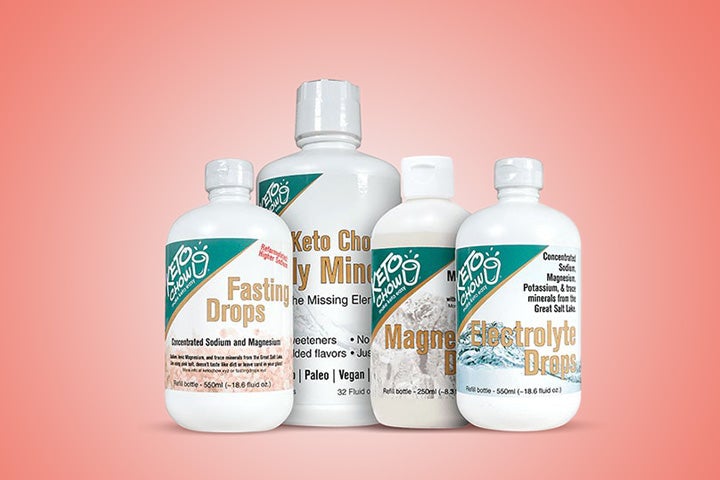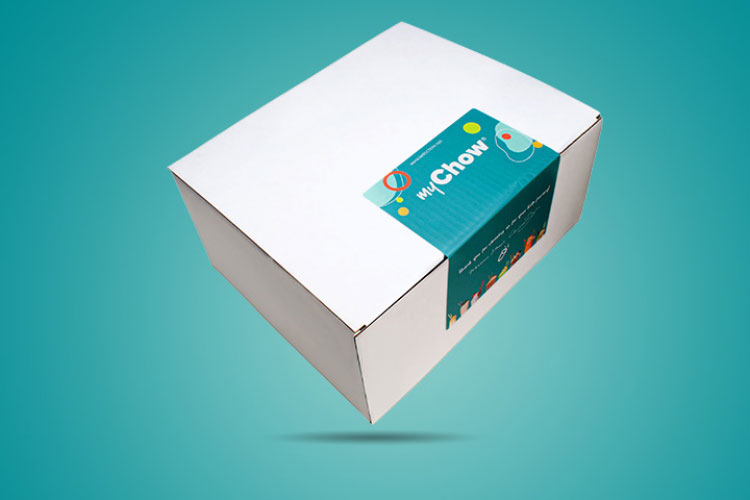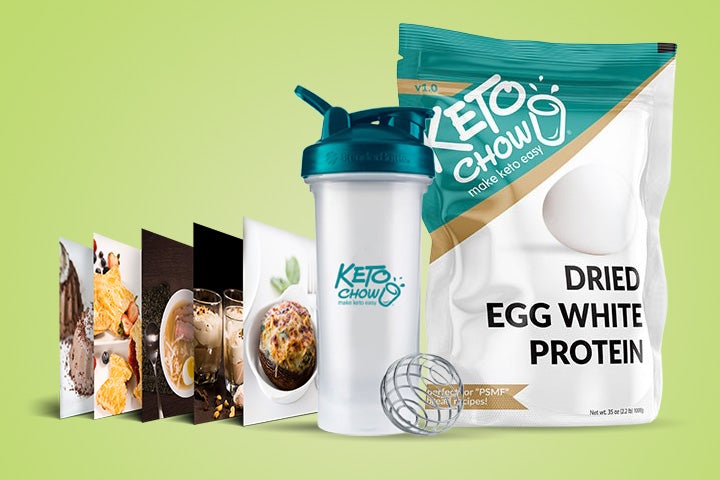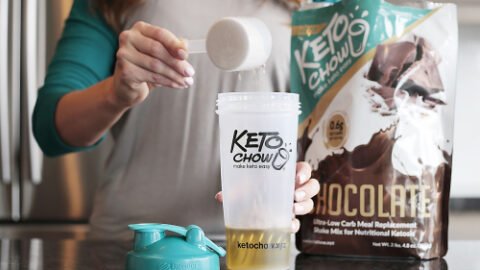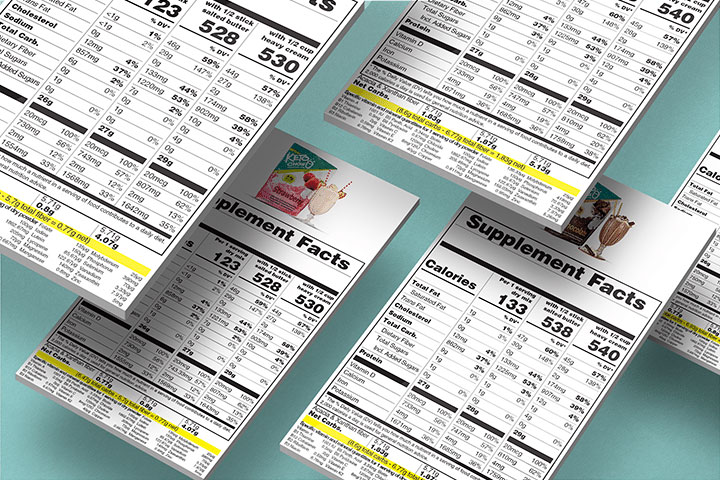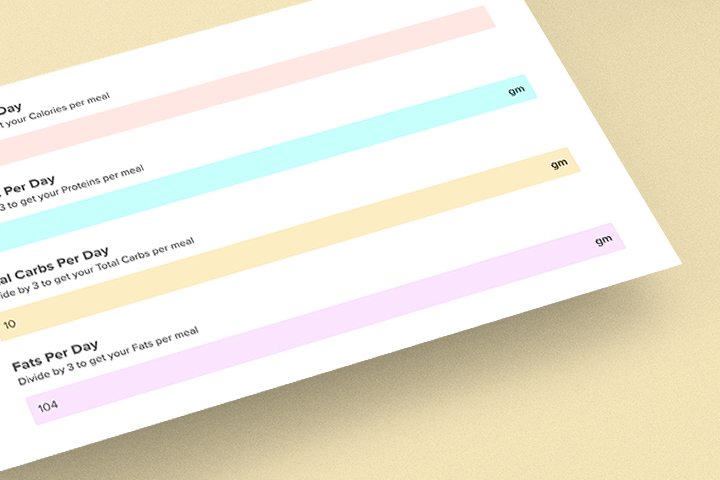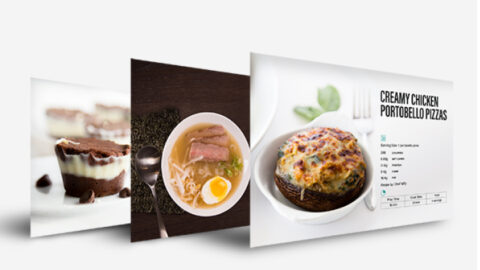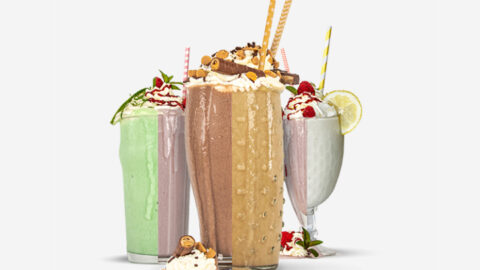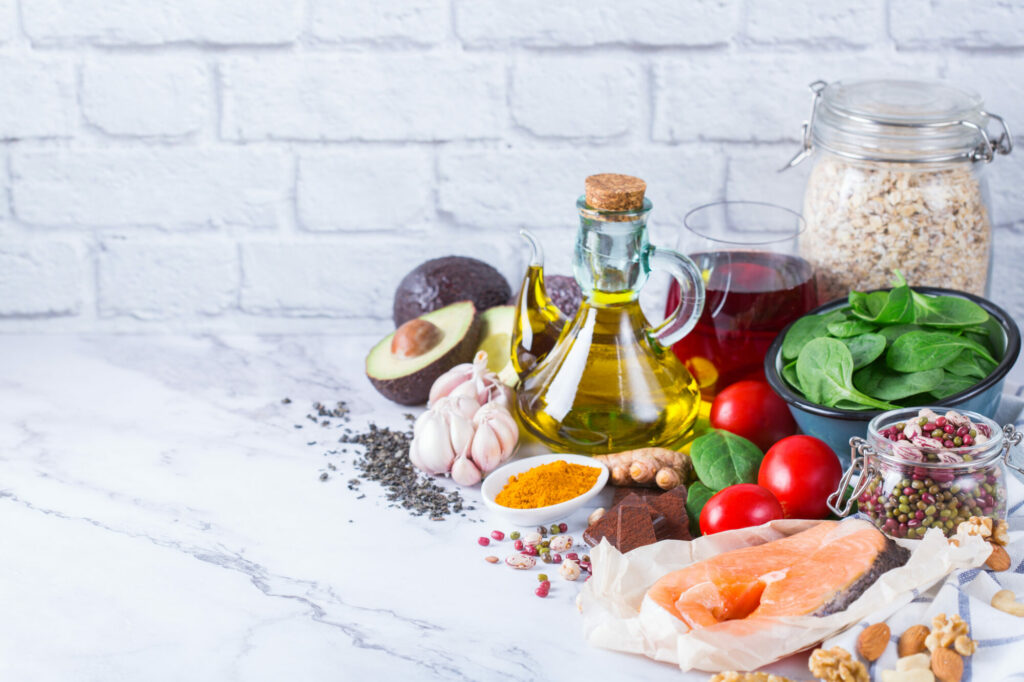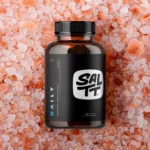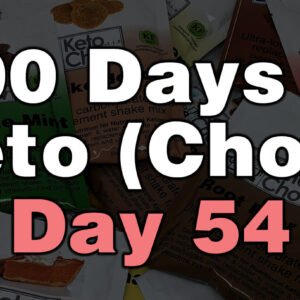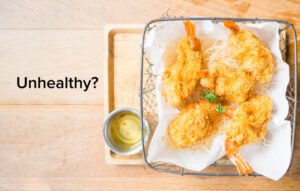Few things are more controversial than cholesterol on a ketogenic diet. Not the cholesterol in your food—most people understand it’s fine to eat egg yolks, bacon, and butter—but the cholesterol in your blood. Should you be worried if your blood cholesterol level goes up on a keto diet? What if it goes up a lot? Let’s take a closer look at keto and cholesterol.
What is Cholesterol?

Contrary to what you might be accustomed to hearing, cholesterol’s sole purpose is not to clog your arteries and cause cardiovascular disease.
Cholesterol is a waxy substance that is absolutely critical for animal life, including human life. In dietary terms, cholesterol is not “essential,” because the human body can manufacture it. (In the nutrition world, something is said to be “essential” if the body has no capacity to synthesize it so we need to get it from food.)
In fact, your body manufactures far more cholesterol than you typically get from your diet, even if you eat a lot of cholesterol-rich foods.
Cholesterol is a building block or raw material for a dizzying array of important things in your body:

- Steroid hormones (such as testosterone, estrogen, progesterone, and cortisol),
- Vitamin D,
- Bile acids (which are needed for proper digestion of fats),
- The myelin sheaths that insulate neurons to facilitate proper neurological function,
- And cell membranes—that’s right, every single one of the trillions of cells in your body needs cholesterol as a structural component.
And that’s just the short list. Cholesterol performs critical functions in the immune system and much more.
Bottom line: even if very high cholesterol is problematic in some way—and that’s a matter of debate—you wouldn’t want to drive your cholesterol level too low, because that would cause its own host of issues. You definitely need some cholesterol in your body!
What are LDL and HDL?

If you’re used to thinking of LDL as “bad cholesterol” and HDL as “good cholesterol,” it’s time for an update. LDL is low-density lipoprotein, and HDL is high-density lipoprotein. These are particles that transport cholesterol inside them; they are not cholesterol themselves.
It’s important to understand that the actual cholesterol molecule is the same whether it’s carried inside an LDL or an HDL particle. (You are the same person whether you’re riding in a taxicab or in your own car.) So there really is no such thing as “good” or “bad” cholesterol. As Ken Sikaris, MD, said in Cholesterol Clarity, “If you’re still looking at LDL as the ‘bad’ cholesterol, then you’re about thirty years out of date.”
Even noted lipidologist Thomas Dayspring, MD, acknowledges that cholesterol measurements don’t indicate much about your cardiovascular health. “The least accurate way of estimating your atherogenic risk on a standard cholesterol panel would be to look at total cholesterol or LDL cholesterol.” (Quoted in Cholesterol Clarity.)
What happens to cholesterol on a keto diet?

The majority of people who adopt a low-carb or keto diet see decreases in their total cholesterol (TC) and LDL-C, and an increase in HDL-C. (LDL-C is shorthand for the cholesterol carried inside LDL particles; HDL-C is the cholesterol carried in HDL particles.)
However, in some people, TC and LDL-C increase, and in a subset of these people, they increase a lot. The latter folks are now referred to as “hyper-responders” with regard to blood cholesterol on a low-carb diet. (Most hyper-responders had a “normal” cholesterol level on a higher carb diet, so the substantially higher cholesterol appears to be their bodies’ response to a very low-carb diet.)
Elevation of LDL-C

It was long believed that high LDL-C was a major, independent cause of atherosclerosis leading to cardiovascular disease (e.g., hypertension, heart attack, stroke). In fact, a study published in 1980 showed that subjects with obesity who followed a low-carb diet experienced substantial weight loss and a decrease in triglycerides (fats in the blood), but LDL-C increased.
This finding was alarming at the time, since an elevation of LDL-C was automatically believed to be harmful. This marked the start of more than two decades during which very little clinical research was done investigating the effects of low-carb diets, owing to fear regarding this purportedly negative outcome.
It may not have been known at that time that it’s not uncommon for LDL-C to increase during weight loss. Well-known keto researcher Stephen Phinney, MD, PhD, noted back in 1991 that during major weight loss, some people experience “transient hypercholesterolemia” – a temporary elevation in blood cholesterol level that often begins to decrease again when weight loss stops and body weight is stable for a while.
More recent research corroborates this; however, not everyone experiences this. Plenty of people who lose weight do not see a rise in LDL-C.
Researchers looking at the effects of low-carb diets in people with type 2 diabetes wrote:
“…an increase in LDL cholesterol may represent a normal physiological process, rather than a pathological change. The presence or absence of other negative health markers, and/or of positive or negative changes in other health markers, should help to provide a clue on the overall metabolic health status of an individual, with clustering of risk factors generally providing greater predictive ability than individual markers.
“It should also be considered that cholesterol markers may be increased transiently during weight loss, thus clinical assessment may be more appropriate after an element of weight stability has been established.”
Does it matter if your cholesterol goes up on keto?

This is the million-dollar question. The only reason to be alarmed by a dramatic increase in TC or LDL-C on a low-carb or keto diet is if you believe that a higher concentration of cholesterol in your blood is automatically harmful, independent of any other factors.
This is currently a matter of great debate, with equally credentialed professionals arguing for opposing positions. When cardiologists and researchers disagree about something so fundamental, what are we laypeople supposed to think?
There are more questions than answers here. Here’s what we do know.
Risk factors

Type 2 diabetes, hypertension, insulin resistance, and metabolic syndrome are all major risk factors for cardiovascular disease (CVD). In fact, a study published in no less than the Journal of the American Medical Association’s special cardiology issue showed that in women younger than age 55, type 2 diabetes conferred ten times the risk for developing coronary heart disease.
Metabolic syndrome conferred more than six times the risk, and high blood pressure more than quadruple the risk. Compared to these, the increased risks from elevated total cholesterol or LDL-C were miniscule, and even being physically inactive paled in comparison.
And we know that low-carb and keto diets are highly effective for improving type 2 diabetes, hypertension, and metabolic syndrome or putting them into remission altogether. So to the extent that keto diets help to correct some of the most severe risk factors for CVD, that should probably be the focus, rather than what happens to cholesterol.
What else do we know?

Low-carb diets tend to correct “atherogenic dyslipidemia”, a term used to encompass three factors: high triglycerides, low HDL-C, and a preponderance of LDL particles that are small & dense. Keto diets are well known to improve all of these in most people. By lowering triglycerides and increasing HDL-C, the ratio between these is improved, and this ratio is believed to be a stronger indicator of coronary disease compared to total cholesterol or LDL-C.
High LDL-C does not automatically mean you have cardiovascular disease

We also know that it’s not uncommon to have very high LDL-C yet have no evidence of arterial calcification. (In plain English: having high LDL-C doesn’t automatically mean you have “clogged arteries.”) The fact is that the amount of cholesterol in your bloodstream tells you nothing about whether or not you have atherosclerosis (buildup of plaque in your arteries).
More evidence continues to mount that you can have “severely elevated” LDL-C but be at low risk for a heart attack or stroke.
How can you determine if you’re at higher risk?

Well, you can assess the actual presence of calcification in your coronary arteries. The test for this is called the coronary artery calcium scan (CAC). Measuring the degree of calcification is a much better way to assess your risk compared to the amount of cholesterol being carried in your blood.
A paper from the journal Atherosclerosis stated that “direct assessment of atherosclerosis is more predictive than traditional risk factors” (such as blood cholesterol level) “and CAC appears to be superior to any other method or risk assessment tool.”
It cannot be emphasized enough that high LDL-C, by itself, does not indicate that you have CVD or are at high risk for developing it. And having an LDL-C in the “normal” range doesn’t guarantee protection. In an analysis of over 130,000 patients hospitalized with coronary artery disease, upon admission, nearly half had LDL-C <100 mg/dL (2.58 mmol/l) and nearly 18% had LDL-C <70 mg/dL (1.81 mmol/l).
On the other hand, more than half had HDL-C <40 mg/dL (1.0 mmol/l) – a possible indicator of metabolic syndrome.
So what should you do? How do you eat keto and not raise your cholesterol?

Work with your doctor! If you’d like to find a keto-friendly doctor near you, search here and here, and keep in mind that if there’s no one in your immediate local area, it could be worth a long drive to work with someone who understands the dynamics of cholesterol on a keto diet. (Some may even provide virtual consultations.)
It’s important to have a total picture of your risk, not just one number by itself. If you have elevated LDL-C, consider getting the CAC to see whether you actually have atherosclerosis or not.
Ask your doctor to walk you through their assessment of your cardiovascular health, taking into account your blood sugar, blood pressure, triglyceride-to-HDL ratio, family history, physical activity, smoking status, and other factors known to affect risk. A treatment plan should not be based on a single measurement in isolation.
It’s also important to understand the risks and benefits of any medications or other therapies your doctor may recommend for you. For example, a recent paper in JAMA Internal Medicine determined that in order to prevent one heart attack, 77 people would need to be treated with a statin drug for 4.4 years.
To reiterate: make an informed decision.

Be an active participant in your own healthcare. Work with your doctor but don’t rely on them to do all the “heavy lifting.” You are making decisions about your body and your life. Your doctor is a trusted advisor and you should value their expertise, but the path forward is ultimately up to you.
Looking for a low carb meal replacement for your diet?

If you’re sick of the meal prep that comes with a keto diet, then check out Keto Chow. Keto Chow is a meal replacement that has 1/3 of your daily protein, vitamins, fiber and other nutrients in every serving. Choose from over 30 flavors, like Chocolate, Peanut Butter, Strawberry, Caramel Macchiato and more! This delicious shake mix is great for an on-the-go meal.
To make Keto Chow, simply add your choice of fat, around 16 oz. of water and a serving of Keto Chow into a BlenderBottle.® Then shake, refrigerate and enjoy!
Other resources
If you’d like to dive deeper into all things cholesterol, I recommend these resources:
- Deception in Cholesterol Research: Separating Truth From Profitable Fiction, by David Diamond, PhD (video presentation)
- End Your Cholesterol Confusion (online course)
- The Great Cholesterol Myth, by Jonny Bowden & Stephen Sinatra, MD
- The Great Cholesterol Con, by Malcolm Kendrick, MD
- Fat and Cholesterol Don’t Cause Heart Attacks and Statins are Not The Solution, Paul Rosch, MD, Editor.
- The Cholesterol Myths, by Uffe Ravnskov, MD
- Cholesterol Clarity, by Jimmy Moore and Eric Westman, MD
If you think you may be a hyper-responder, here are some resources that specifically address that situation:
